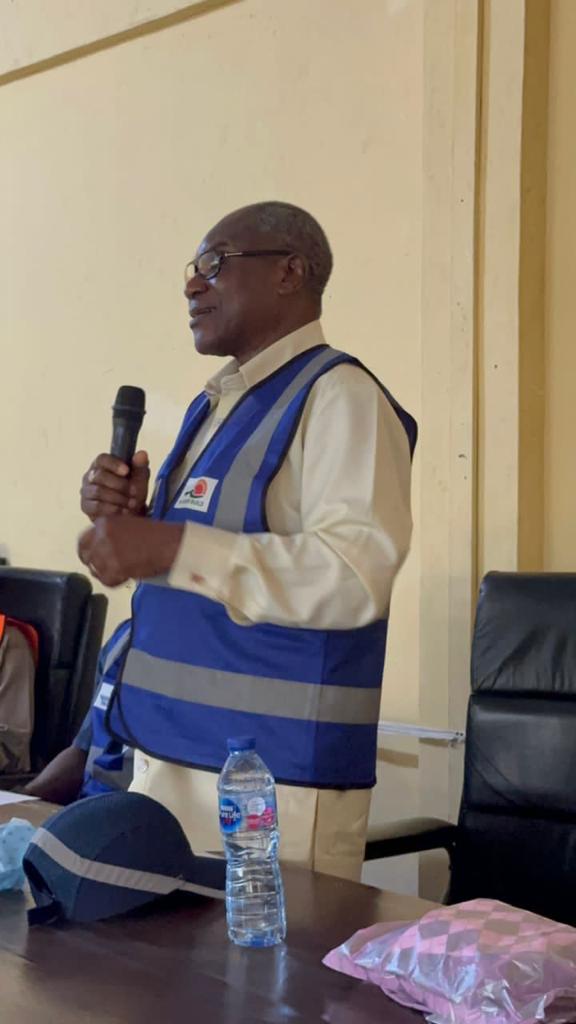Expert tips technology, innovation for sustainable, affordable housing

By Clement Adeyi
The Chairman, Council of Registered Builders of Nigeria, Elder Samson Opaluwah, has tipped technology and innovation as creative and result-oriented measures to improve the quality, affordability and sustainability of housing in Nigeria.
He stressed that application and realities of such techniques would go a long way in guaranteeing housing needs which are very crucial to human living.
Opaluwah stated this in Abuja on Wednesday during the 2023 MCPD national workshop of the Nigerian Institute of Building (NIOB).
“As we all know, housing is one of the most essential human needs, and it plays a vital role in our overall well being . Therefore, it is crucial to focus on how we can leverage technology and innovation to improve the quality , affordability, and sustainability of housing,” he said.
By leveraging technology, developers can achieve economies of scale
He stressed that innovation and technology had immense potentials to transform the housing sector.
“By leveraging these advancements we can build high quality, affordable and sustainable homes that meet the needs of our growing population,” he said.
Opaluwah also pointed out that technology had the potentiality to provide solution to city slums and rural dwelling, stressing that it must be leveraged to achieve the goal.

“In recent years, we have witnessed several innovative technologies transforming the housing sector. For instance, prefabricated construction and system buildings have emerged as a credible solution, allowing developers to build high quality homes at a fraction of the time and cost of traditional construction,” he noted.
“By leveraging technology, developers can achieve economies of scale, reduce waste, and minimize the environmental impact of construction. Moreover, advancements in building materials have also played a significant role in enhancing the quality and sustainability of housing,” he added.
Housing deficit creates an opportunity for slum development, which further exacerbates the problem
“Sustainable building materials are now emerging as viable alternatives to traditional building materials such as concrete and steel. These materials are not only environmentally friendly, but durable, cost – effective and easy to work with,” Opaluwah said.
While still making a case for technology as a formidable tool in housing development, he stressed that it’s integration in the development had also inspired a lot of significant benefits.
“For instance, the use of Building Information Modeling ( BIM ) has revolutionized the construction industry, providing a 3D digital model of a building which can help identify and address design flaws, improve collaboration among stakeholders and minimize construction errors.”

“Similarly, the Internet of Things (IoT) has enabled the creation of smart homes, allowing homeowners to control various aspects of their homes, including lighting, temperature and security from their smartphones,” he said.
Opaluwah who also expressed worries over perennial housing challenges in Nigeria, lamented that the challenges posed serious social and economic consequences in different harrowing dimensions.
He noted that poor housing conditions could lead to health problems such as respiratory diseases and affect the overall well being of Nigerians.
According to him, it is disgusting that “housing deficit creates an opportunity for slum development, which further exacerbates the problem.”
He stressed that the role of appropriate housing in the attainment of the SDGs was crucial and must be prioritized by relevant stakeholders.
Towards maximizing the potentials of the workshop, he said: “On behalf of CORBON, I counsel that the outcome of this workshop further provide the Nigerian economy with viable solutions to the national housing need through the deployment of technology.”
The role of Builders and Buildings in the national economy is critical to nation-building
He also tasked builders to optimize their skills with a view to addressing national housing challenges beyond the routine building of structures.
“The role of Builders and Buildings in the national economy is critical to nation-building. Builders must, as of necessity, focus on using their skills to address national challenges beyond the routine aggregation of concrete and mortar to produce structures.
While also stressing the need to actualise the importance of the workshop, Opaluwah stressed:
“I sincerely hope that this workshop will also address the emerging areas of digital money, crowdfunding and blockchain as a solution to housing finance in our country. The application of technology can be the game changer.”
He also urged builders to connect with the incoming administration and come up with fresh methods of reengineering the national economy in ways capable of bridging unemployment gaps and economic malaise.
“We are at the dawn of a new administration in our country. With the current indices of unemployment and economic downturn, builders can propose new methods of re – engineering the national economy through the multiplier effect of the building ecosystem and supply chain. Thus, we will be positioning ourselves as professionals worthy of our titles.”
“We are convinced that builders can leverage on technology to bring about improvements in affordable housing, mass housing and social housing development,” Opaluwah stressed.
“We also pledge to live up to our responsibility of regulating and ensuring that the right quality and standards are put in place to aid the use of technology in building construction and management in the construction sector,” he noted.
“We must also acknowledge that innovation and technology alone are not enough to solve the challenges facing the housing sector . We need to collaborate with policymakers, developers and communities to develop holistic solutions that prioritize the needs of all stakeholders. This is exactly what the 7th Council of CORBON is assiduously advocating at all fora,” he said.
The Insight Report
Nigeria Coverage



